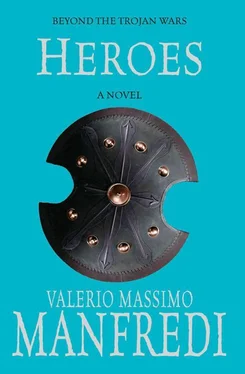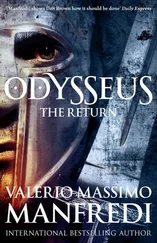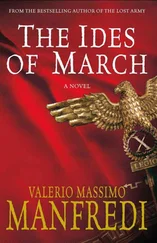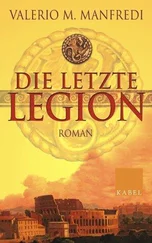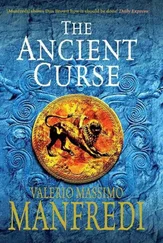Valerio Manfredi - Heroes
Здесь есть возможность читать онлайн «Valerio Manfredi - Heroes» весь текст электронной книги совершенно бесплатно (целиком полную версию без сокращений). В некоторых случаях можно слушать аудио, скачать через торрент в формате fb2 и присутствует краткое содержание. Жанр: Исторические приключения, на английском языке. Описание произведения, (предисловие) а так же отзывы посетителей доступны на портале библиотеки ЛибКат.
- Название:Heroes
- Автор:
- Жанр:
- Год:неизвестен
- ISBN:нет данных
- Рейтинг книги:3 / 5. Голосов: 1
-
Избранное:Добавить в избранное
- Отзывы:
-
Ваша оценка:
- 60
- 1
- 2
- 3
- 4
- 5
Heroes: краткое содержание, описание и аннотация
Предлагаем к чтению аннотацию, описание, краткое содержание или предисловие (зависит от того, что написал сам автор книги «Heroes»). Если вы не нашли необходимую информацию о книге — напишите в комментариях, мы постараемся отыскать её.
Heroes — читать онлайн бесплатно полную книгу (весь текст) целиком
Ниже представлен текст книги, разбитый по страницам. Система сохранения места последней прочитанной страницы, позволяет с удобством читать онлайн бесплатно книгу «Heroes», без необходимости каждый раз заново искать на чём Вы остановились. Поставьте закладку, и сможете в любой момент перейти на страницу, на которой закончили чтение.
Интервал:
Закладка:
‘You will pay for the blood of Agamemnon!’ he shouted in a rage. ‘You will appear before him this very day in Hades, with your nose and ears cut off!’
‘Then come and get me, you cur!’ shouted back Aegisthus, standing up to him. ‘I fucked your mother and butchered your father! Yes, that’s right, he was bleeding like a pig!’
Those words pierced through Orestes like a white-hot blade as he charged forward, and devastated his soul. A veil of blood dropped over the eyes of the prince. His fury vanished all at once and was replaced by an icy calm. Near his enemy now, he halted his charge and weighed his spear. Aegisthus’s sneering confidence disappeared all at once; he looked around wildly and spotted an abandoned shield. He dropped lightning quick to gather it, but Orestes was left-handed and threatened him now on his undefended side. Orestes heaved the ashen pike and it sank through his shoulder blades, between his neck and his back, where his breastplate gave no protection. It nailed his enemy to the ground in that position, on his knees; Orestes watched as a great stream of blood poured from the mouth of the retching, choking man. But before he died, he wrenched the spear from his body and knocked him over on to his back. He drew his sword and cut off his nose, his lips, his ears and his genitals, so thus he would appear to the shade of his father the Atreid in the house of Hades.
Aegisthus’s soul fled sighing into the cold wind that battered the countryside, and Orestes found himself face to face with Pyrrhus. He was spattered with blood from head to foot and he had bits of flesh and human brains on his shield and greaves. Orestes felt a cold chill at the sight of him. He was panting, and stank unbearably.
‘The Argive infantry is wiped out,’ he said. ‘I imagine I should thank you for getting the war chariots out of my way.’ And then, observing the desecrated corpse of Aegisthus: ‘By the gods, I didn’t think you were capable of it. I have to admit you’ve got it in you.’
Orestes was uneasy at this praise, and answered: ‘Pisistratus and King Menelaus may be in difficulty. We must return to Mycenae.’ He leapt on to his chariot, followed by Pylades and his squadron, and set off swiftly towards the city.
Pyrrhus turned back to his men and said: ‘Start marching and catch up with me as soon as you can. If you get there when the battle is over, there will be nothing left for you.’ Then he mounted the chariot that Automedon had just brought to his side, and hurled off after Orestes’s squadron.
‘Tonight you will be king,’ he said to Automedon, ‘as I have promised you.’
‘I didn’t do it for you,’ replied the charioteer. ‘I did it because you are the son of your father.’ He whipped on the horses.
Meanwhile, the commanders of the Mycenaean army had given orders to attack, sure that Aegisthus had by then got the better of Pyrrhus, and taking advantage of the fact that the chariot squadron commanded by Orestes had taken off to the north. The forces were balanced; they might even win.
Menelaus then joined forces with Pisistratus’s Pylians; he drew up at the centre, leaving the right wing to the son of Nestor. The enemy army were favoured by the slope and the direction of the wind; they had gained ground and were managing to push back their adversaries, even though Menelaus, at the centre, was fighting like a lion. The king felt that he was battling under the eyes of his brother; he could hear his cries roaring from the penetralia of the palace. He shouted to those he had before him: ‘Stop fighting! Accept the truce or you will be exterminated! Abandon the usurper!’
But few could hear him in the din of the battle, and those who heard him could not understand him. They continued fighting desperately because they had been told that the victors would exterminate them all and sell their families into slavery.
Pisistratus brandished his enormous two-edged axe on the right wing, toppling his enemies one after another, his men so close behind him that the entire formation was slowly rotating to the left. Thus, when the chariot squadron led by Orestes came into sight, Queen Clytemnestra’s army had their backs almost completely turned to him. Orestes did not slow his onward charge and mowed into the enemy, drawing all of his men behind him. Pylades returned to the head of his Phocians and led them into the attack. Pyrrhus, who had been following at a short distance, threw himself into the fray as well, as the sky was rent by blinding lightning and shaken by loud peals of thunder. Rain pelted down on the raging conflict, soon turning into hail, and the two armies were immersed in a magma of mud and blood, in a chaos of screaming and neighing, that completely obscured the minds of the warriors, plunging them into a blind frenzy, a delirium of destructive folly. Certainly, had the gods dissolved the thick mist that clouds the vision of mortals, Menelaus the Atreid, Pyrrhus, Orestes, Pylades and Pisistratus would have seen the bloody ghosts of Phobos and Deimos passing among the storm clouds, announcing the arrival of the god of war.
The Locrians and Epirotes had arrived and had drawn up in columns behind Pyrrhus’s war-car. The son of Achilles had pushed his way through the entire formation and was battling on the front line; since the terrain there was too rough for chariots, he had descended and was fighting on foot with such fury that the enemy line wavered and split, leaving an opening at the centre through which hundreds of warriors poured. The Mycenaean army was breaking ranks and retreating haphazardly towards the gate to seek haven within the city walls. Pisistratus cut them off and, finding themselves completely surrounded, they threw down their arms and pleaded for mercy. Menelaus saw this and stopped, ordering the heralds to have the fighting cease. The blasts of the horns sounded amid the claps of thunder and Pisistratus was the first to hear them and call off his warriors. Orestes heard them and he halted his chariots. Pylades heard them and he withdrew his Phocians on the left wing, but Pyrrhus continued the massacre, and he incited his Epirotes to attack the undefended quarter close to the walls.
Anchialus was alone at the centre of the camp, for the Epirotes who had been guarding him had taken to their heels when the storm broke, seeking refuge in a mountain cave. He waited until the rain had soaked the earth, then he propped his feet against the pole and pushed it back and forth until he had uprooted it. He freed himself of his bonds and ran back to his tent to recover his weapons. He approached one of the terrified horses who was trying to kick himself free of the reins that kept him tied to a tree at the edge of camp. He loosed the steed and jumped on to its back, riding off before his guards had realized a thing. He galloped over the plain lit by flashes of lightning and pelted by the wind and rain. When he reached Mycenae, his head was bleeding and his body ached from all the hailstones that had struck him, but he distinctly saw Menelaus’s army immobile under the downpour. At that very moment a young blond warrior passed on his battle chariot; he was heading towards Pyrrhus, who was continuing to advance towards the city. The youth cut in front of him and came to a halt, shouting: ‘Stop, and call off your men! The king has ordered that the fighting cease. The survivors have surrendered. Enough blood!’
‘I greatly regret it,’ replied Pyrrhus, ‘but I promised my men rich spoils, and that is why they followed me here. You stop them, if you’re capable of it.’
‘I will stop you, if you don’t order them to withdraw immediately,’ shouted Orestes. ‘Follow the king’s orders!’
‘I am the king,’ shouted Pyrrhus. ‘I am the strongest. Get out of here before I topple you into the mud. Do not defy fortune!’
Читать дальшеИнтервал:
Закладка:
Похожие книги на «Heroes»
Представляем Вашему вниманию похожие книги на «Heroes» списком для выбора. Мы отобрали схожую по названию и смыслу литературу в надежде предоставить читателям больше вариантов отыскать новые, интересные, ещё непрочитанные произведения.
Обсуждение, отзывы о книге «Heroes» и просто собственные мнения читателей. Оставьте ваши комментарии, напишите, что Вы думаете о произведении, его смысле или главных героях. Укажите что конкретно понравилось, а что нет, и почему Вы так считаете.
